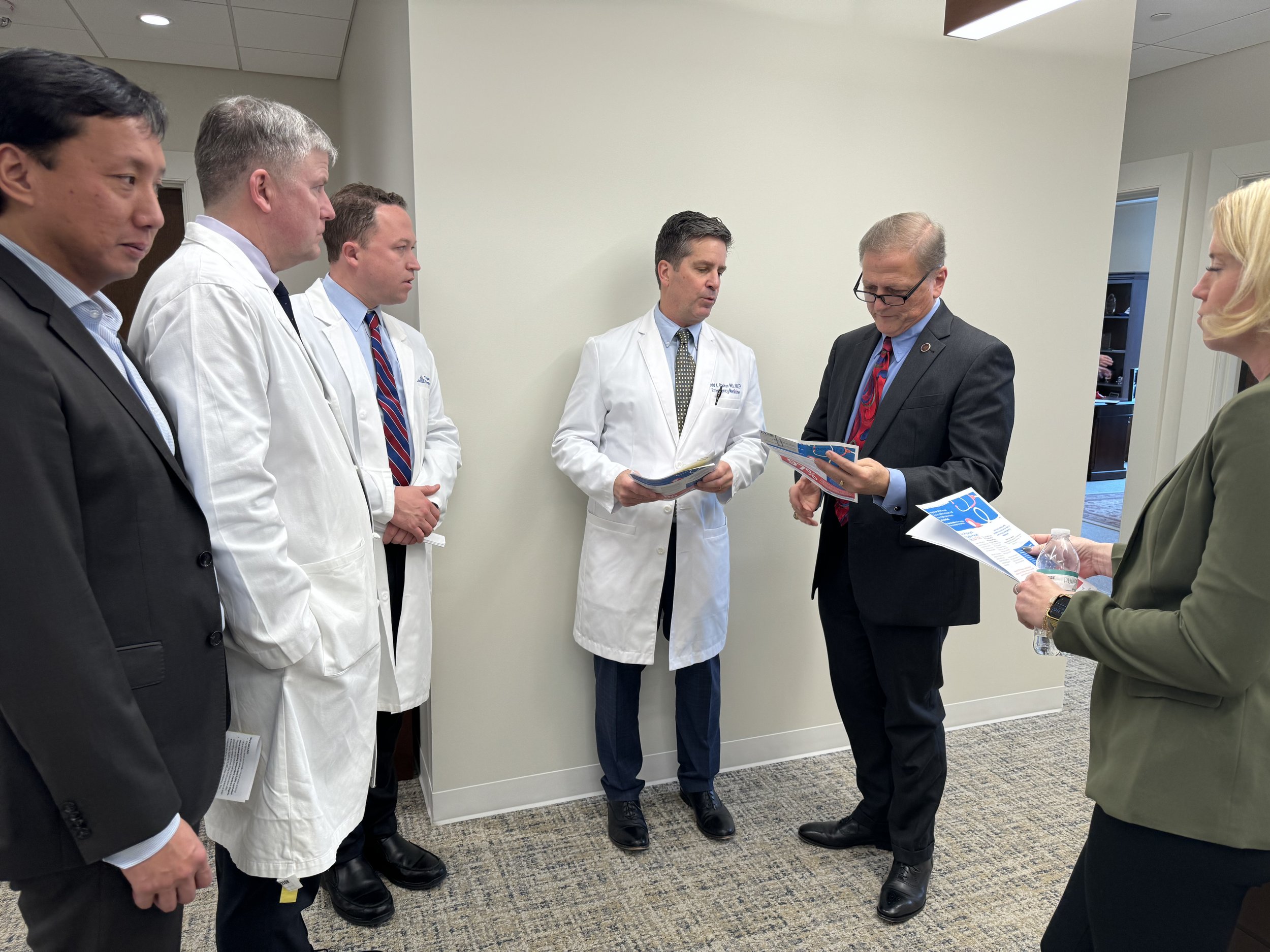New Virginia Emergency Medicine-Related Laws in effect July 1, '24
At the start of each year, the Virginia General Assembly convenes and lawmakers gather in Richmond for a few weeks to debate new laws and amendments to existing laws that impact life in the Commonwealth. Many (but not all) of the bills that get signed by the Governor go into effect on July 1 each year.
Members of Virginia ACEP talk to lawmakers in January during our annual Advocacy Day.
VACEP always supports certain bills or opposes pieces of legislation during the General Assembly. And each year, there are wins, losses, and compromises.
Here are three bills that passed: two of which go into effect in July 2024, while the third — one that VACEP actively pushed — will go into effect in July 2025.
Family members can be with loved ones in the ED under ECO/TDO — but only if you, the emergency physician, say so.
Senate Bill 546 allows access of family members to patients under emergency custody order (ECO) or temporary detention order (TDO) while in the emergency department or hospital. VACEP fought for an amendment to the bill, which was included in the version signed by the governor, giving emergency physicians the right to prevent family members from seeing patients if their presence would create a medical, clinical, or safety risk to the patient or provider, or interferes with care. (The patient, of course, may also object).
“It can be a decision made with our nursing staff to decide whether it is the best thing for a patient. We are reasonable people and we do allow family members to come back when it is good for the patient,” says VACEP president-elect Joran Sequeira, MD, who is involved in several state behavioral health projects.
NPs can practice independently after three years of training
Virginia nurse practitioners this year sought to expand their scope and gain autonomous practice in less time than existing law allows. They succeeded, with some guardrails.
HB 971 (Tran) changed the training requirements for independent practice for NPs from five years/9,000 hours to three years/3,600 hours. NPs had originally requested just two years training.
VACEP was the only medical group to oppose the bill and push for the existing five-year standard. Why? Because physicians are not allowed to practice without supervision after they graduate from medical school and must complete 12,000-20,000 hours of post-graduate proficiency training and 3-4 year residency.
“You don't learn how to be a doctor in medical school, you become one in residency,” said Todd Parker, MD, VACEP’s immediate past-president. “Nobody should be practicing independently without an equivalent physician training.”
‘Til next year: Keeping physicians in ERs 24/7
VACEP introduced and was able to pass legislation requiring a physician (not necessarily an emergency physician) be physically present in the ER at all times. Hospitals get an extra year to plan for this one , as it won’t go into effect until July 1, 2025.
Current Virginia law requires hospitals to have a licensed physician on call, though not necessarily physically present and on the premises in the ER. The bills are HB 353 (Hope) and SB 392 (Pekarsky).





